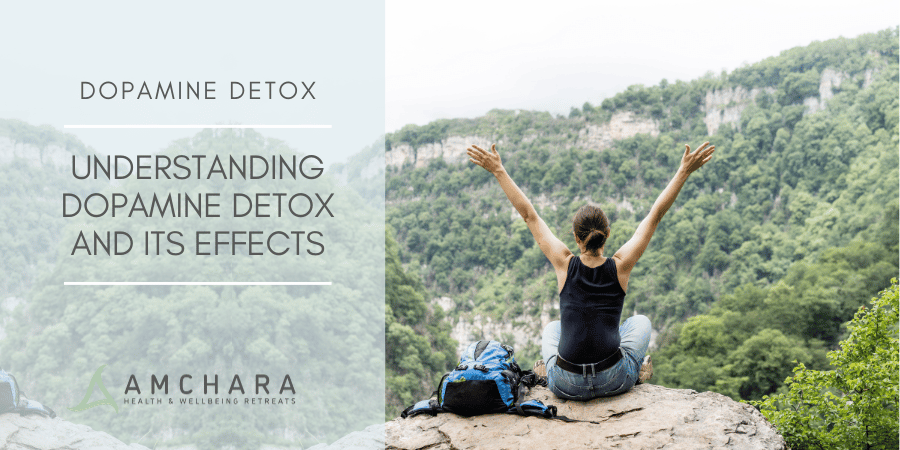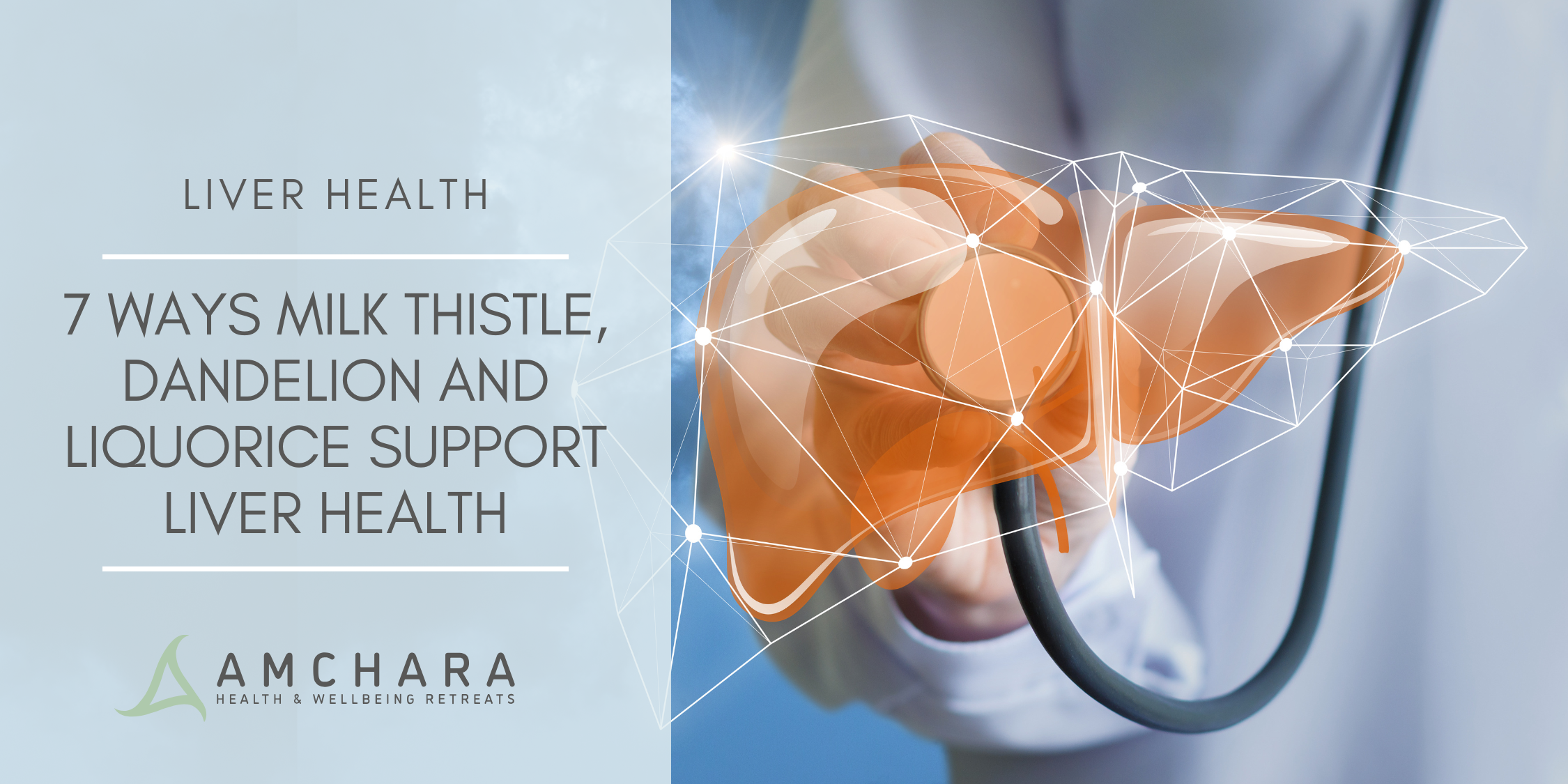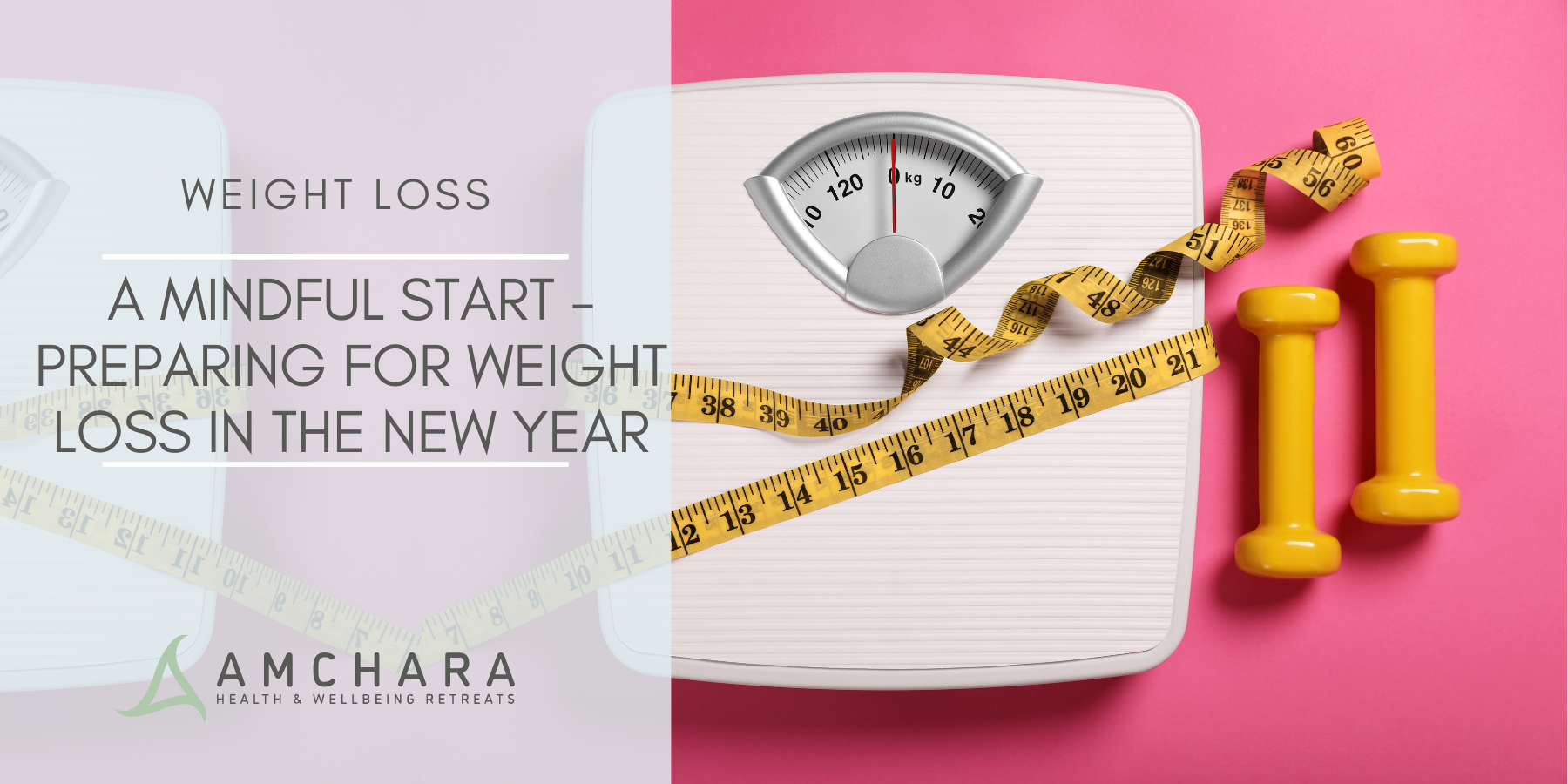Topics Covered in this article:
‘Dopamine detox’ is a term that has been trending in recent years, as people struggle to maintain balance and self-regulation whilst navigating an environment rife with instant sources of gratification.
In the modern world of unlimited information and influencer endorsed expert plans it can be difficult to find balanced, evidence-based advice on how to effectively maintain control of your mental and physical wellbeing.
Our articles are always evidence-based and orientated towards a holistic and Personalised Health approach; we aim to provide you with actionable knowledge and tips to help you on your journey to optimal health. In this article we will take a closer look at what this term means, and explore some simple ideas to help you to return to a more regulated state.
What is dopamine?
Dopamine is the feel-good hormone that drives desire, rewarding us when we carry out activities that are good for us. In prehistoric times, this primarily meant food (especially rich sources of fat and sugar), sunlight (vitamin D), social interactions, sexual activity and movement – all the things that encouraged and contributed to our survival and procreation. We repeat the actions that we know will cause dopamine release – because they feel good. This is how our own bodies train us to repeat beneficial behaviours.
You cannot entirely ‘detox’ from dopamine because it is involved in a variety of essential processes in the body, from eating to learning, sleep and mood, and even playing a role in regulating your heart rate and kidney function.
How can this impact my mental health?
In the modern world this hormone can work against us; encouraging behaviours that feel ‘good’. such as frequent consumption of high-fat, high-sugar foods that would never have been available to our prehistoric ancestors, who would have taken advantage on rare occasions sweet ripe fruit and fatty meats were available – but much less frequently than the propensity with which we have access to such foods today.
Alcohol, cigarettes, and any substance that triggers dopamine pathways in our brains have the same effect, causing an unnaturally high dopamine release and potentially addictive feelings of pleasure.
Food manufacturers are well aware of the role of dopamine – processed foods in particular are designed to cause a large release of the pleasure hormone, sending us back again for more and more.
Too much dopamine is not a good thing. We can in fact develop a tolerance to our own chemical reward systems, triggering ever more dopamine seeking behaviours (as is seen commonly in any addictive behaviours). If we don’t receive these anticipated dopamine hits, it can lead to irritability, a lack of motivation, feelings of low mood – the same feelings that we associate with withdrawal from addictive substances or even just quitting bad habits. Feeling good is addictive, and our body is designed to encourage us to do things that feel good.
The internet and dopamine
Internet surfing, ‘doom scrolling’, computer games and social media use stimulate dopamine pathways too, as our brains receive them as if they where a real-life interaction – which we are wired to be rewarded for, as these strengthen social bonds and help to ensure survival and procreation.
Social media in particular is specifically designed to exploit our pleasure system to increase its appeal, as well as to promote a desire for increased consumption. With social media content becoming increasingly short form; endless short clips and ‘click bait’ titles (that we often click away from reading in full), it is easy to jump from one quick dopamine hit to another dopamine hit.
So what is a ‘dopamine detox’?
Another, and perhaps more accurate, term is ‘dopamine reset’. Essentially, this means removing as many forms of instant gratification as possible from your life for a period of time, in order to reduce your dopamine ‘tolerance’.
Benefits of this can include reducing your dependency on physically or mentally detrimental sources of pleasure, be it snacking on unhealthy foods or scrolling mindlessly through your social media feed (especially at night due to blue light disrupting natural sleep rhythms). By reducing or removing activities that trigger effortless dopamine release, you may also find that you are motivated to begin to enjoy and participate in other activities more often.
This could be exercise, where you must expend considerable effort in order to produce dopamine, to more educational long form media and books, versus endless short posts and videos (and thus improving your concentration span), or spending increased time with loved ones, or simply appreciating simple, healthier meals more often.
How do I get started?
This ‘reset’ can look different for everyone. Alcohol, nicotine, caffeine and refined sugar tend to be the standard stimulants to remove, as well as incorporating a ‘digital detox’. This can range from total elimination of screen time for a period of time, to simply deleting or blocking access to your social media (if you require access to a computer or phone for work), or at least restricting and minimising notifications.
It is recommended that you replace television and films with reading and exercise, meditation or yoga, or any other activity that involves activating your brain and body – some people may like turning to brain-stimulating board games and puzzles for entertainment.
You may also wish to incorporate a more significant change in diet. Reducing or eliminating refined sugar, fried, refined and processed foods, increasing your consumption of whole foods and using less salt can be transformative – not just in resetting dopamine, but also because you may find you retrain your tastebuds to enjoy more healthy foods. Studies show that our palate adjusts in response to changes to the salt and sugar content of our diet.
Takeaway
If you want to reduce your dependance on non-beneficial sources of stimulation and dopamine, these are a few concepts and steps you can take to help you make positive changes to improve your mental and physical health.
For support during your reset, a change in environment and reduction in temptation can be a huge help. Why not consider Amchara for a relaxing detox health retreat in our tranquil surroundings? With expert advice on hand from our experienced practitioners, you can benefit from Personalised Health advice, tailored to your needs and goals to help you make the most of this transition, physically and mentally.
Juicing and fasting may be recommended as part of this process, according to your personal situation and unique health needs. You will be immersed in a supportive and nurturing environment that enables you to switch off screens, relax and kickstart your health journey, including physical activities and empowering, educational talks.




